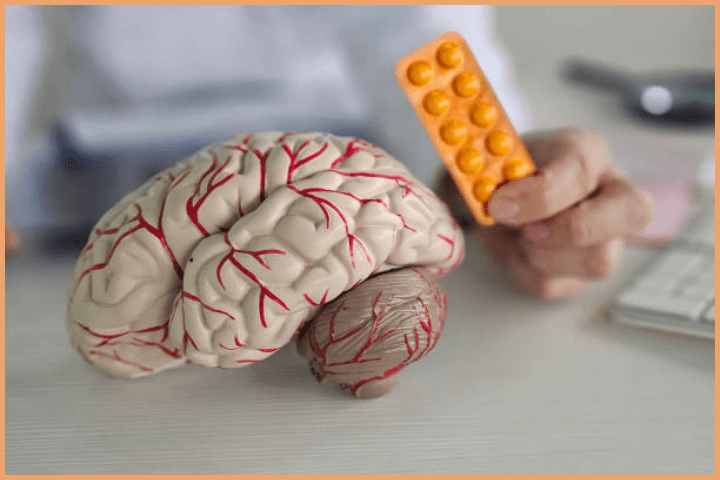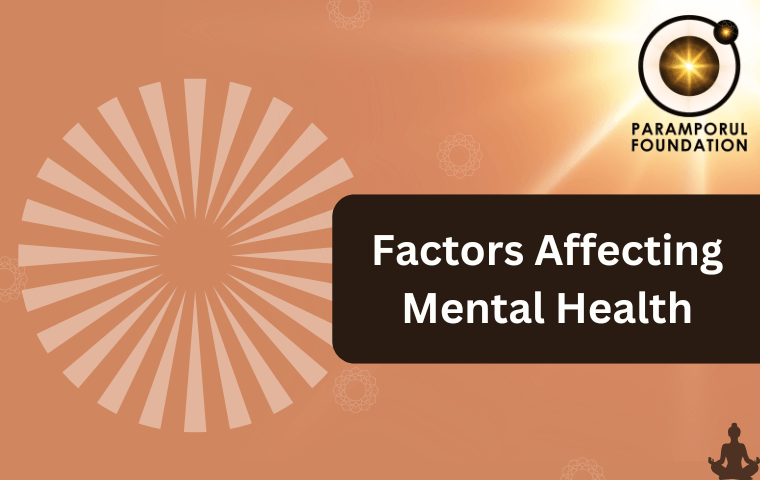Mental health is essential to our overall well-being. It affects how we think, feel, and act in our daily lives. Understanding the factors that impact mental health can help us take better care of ourselves and others. Several factors can influence our mental health, from our environment to personal experiences and even our biological makeup. Let’s explore some of these factors affecting mental health.
Major Factors Affecting Mental Health
Understanding the key factors affecting mental health can help us recognize potential risks and take proactive steps to safeguard our well-being. Tackling these factors can boost mental well-being and improve our overall life experience.
1. Environment

The surroundings we live in have a major impact on our mental well-being. This includes our physical surroundings, such as the place we live and work, as well as the social environment. A stressful, unsafe, or chaotic environment can make it harder to maintain good mental health. On the other hand, a supportive and peaceful environment can help protect against mental health struggles.
2. Social Connections

As social creatures, maintaining healthy relationships with family, friends, and colleagues is vital for our mental well-being. Having support from loved ones can alleviate stress and enhance emotional well-being. However, loneliness, lack of social support, or conflict in relationships can increase the risk of mental health problems like anxiety and depression.
3. Financial Stress

Financial difficulties can lead to considerable stress. Concerns about finances, such as job loss or unpaid bills, can trigger anxiety and depression. Worrying about our financial situation can impact our mood and make it more difficult to maintain both mental and physical well-being. A stable financial situation and secure housing are important for maintaining good mental health.
4. Life Changes

Life is full of changes, both big and small, and how we handle them can affect our mental health. Significant life changes, such as relocating, switching jobs, or experiencing the loss of a loved one, can lead to stress or sadness. Even positive changes, like having a baby or getting married, can bring stress. It’s important to manage these changes and seek support when needed.
5. Physical Health

There is a strong connection between our physical health and mental well-being. Chronic illnesses, injuries, or long-term health conditions can cause emotional stress, leading to mental health challenges like depression or anxiety. Taking care of our bodies and addressing physical health problems can improve mental health outcomes.
6. Past Trauma

Experiences of trauma, especially during childhood, can have lasting effects on mental health. Experiencing abuse, neglect, or witnessing traumatic events can heighten the likelihood of developing mental health conditions such as PTSD, anxiety, and depression. Getting support from a counselor or therapist can assist in working through and recovering from past trauma.
7. Addiction and Substance Abuse

Substances like alcohol and drugs have a profound negative effect on mental health. While some may use substances to cope with stress, they often make mental health problems worse. Over time, addiction can lead to further emotional and psychological challenges, making it difficult to manage mental health without professional help.
8. Genetics

Our genetic makeup can influence our mental health. If there is a family history of mental health conditions, such as depression, anxiety, or schizophrenia, you may be at a higher risk of developing similar issues. Nevertheless, genetics is only one factor in the overall picture. Environmental factors and life experiences also play important roles in mental health.
9. Neurochemistry

Neurochemistry refers to the chemicals in the brain that affect our mood and emotions. An imbalance in brain chemicals, like dopamine and serotonin, can lead to mental health disorders like anxiety and depression. Medication can sometimes help correct these imbalances, but it’s important to work with a healthcare provider for the right treatment.
10. Stigma and Discrimination

The negative stigma surrounding mental health may discourage individuals from seeking support. Negative social attitudes toward mental health conditions can make individuals feel ashamed or isolated. Reducing stigma and promoting understanding can help more people feel comfortable seeking help and receiving support.
How to Protect Your Mental Health
Although we can’t control all the factors influencing mental health, there are actions we can take to safeguard it:
- Stay connected: Spend some time with your family and friends and talk about your feelings.
- Set boundaries: Learn to say no when necessary and prioritize self-care.
- Exercise: Engaging in regular physical activity can enhance mood and alleviate stress.
- Seek support: If you’re experiencing challenges, consider consulting a mental health professional for assistance.
- Practice meditation: Meditation can serve as an effective practice for enhancing mental well-being. It helps reduce stress, increase mindfulness, and promote relaxation. By practicing techniques like guided meditation, deep breathing, or mindfulness, dedicating time each day to quiet the mind can improve emotional strength and mental focus.
Mental health holds the same value as physical health, and prioritizing it is key to living a balanced and joyful life.

